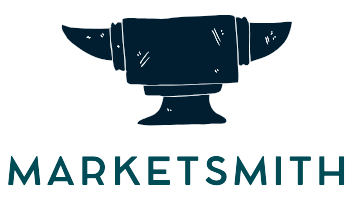The Role of AI in SEO: What You Need to Know in 2025

Artificial intelligence (AI) in SEO has advanced fast and offers immense potential in integration into content strategies; algorithm updates for search engines, and digital marketing in 2025 and beyond. It is more than a fad; it is a fundamental shift that SEO professionals, content marketers, and company owners must all adjust to.
Search engines now look beyond essential keyword matching to grasp context, intent, and user behaviour. AI models, such as Google’s Search Generative Experience (SGE), transform search results, user engagement, and content rankings.
While AI automates processes, provides insights, and improves methods, SEO remains dependent on human ingenuity and strategic thought. The most successful firms will combine AI skills with human intuition to achieve the best results.
This article delves into AI’s genuine influence on SEO—what’s changing, what remains consistent, and how to stay ahead. We will discuss significant themes for 2025, such as technical SEO automation, AI-driven search intent analysis, and AI-powered content optimisation.
How Is AI Changing SEO in 2025?
AI is the engine that powers search engines and digital marketing tactics; it is no longer a sci-fi idea in SEO. Artificial intelligence is and will keep changing how we search. It will focus more on data, boost personalisation, and make searches more intuitive.
AI is pervasive in our daily lives, from smartphones offering personalised suggestions to virtual assistants using AI to summarise studies. Search engines now focus on understanding user intent and context. This shift helps them produce more precise and relevant search results than matching terms.
Decades of preparation have led to this moment. AI pioneers such as Alan Turing, Marvin Minsky, and John McCarthy established the cornerstone for machine intelligence. It paved the way for today’s advanced AI-powered search engines.
Keyword-based algorithms and human indexing were the mainstays of early search systems. They tended to be of little use and lacked familiarity with the background. Natural language processing (NLP) and machine learning advancements enable search engines to create fast, AI-driven responses. They can anticipate what users want and adapt to different searches.
AI-driven solutions simplify optimisation, automate tedious tasks, and enhance predictions. Advances in machine learning and natural language processing nudge businesses to be free from traditional ranking methods, lowering the risk of lagging.
Personalisation is key now. AI creates tailored search results using user behaviour, preferences, and real-time data. Search engines are also integrating AI-powered answer engines, which are changing the emphasis from conventional organic search listings to instantaneous, AI-generated replies.
Businesses need to use AI-powered strategies. They should focus on technical efficiency, intent-driven optimisation, and content depth. It will help them succeed in the evolving SEO landscape. Although AI is a tool for improvement, strategy, creativity, and authenticity in digital marketing still need human oversight.
Using AI for Content Creation & Optimisation
AI is now at the forefront of content development and optimisation rather than being a supporting actor in SEO. But in 2025, AI-generated content won’t be enough to rank or hold users’ attention.
The secret is using AI to enhance content humans create with purpose. This collaborative approach ensures that human creativity and insight remain at the heart of content creation, with AI as a valuable partner.
AI-Generated Content: Boost or Risk?
Can AI create many scripts, blog posts, and social media captions? Yes, but is this content continually optimised for search engines? Not always. Unfiltered AI output often lacks depth, creativity, and alignment with search intent. At the same time, tools like ChatGPT, Jasper, and Surfer SEO create good drafts. To use AI effectively, think of it as a creative partner instead of a leader.
How to Use AI for High-Quality Content?
- Topic Discovery: AI helps you produce content ahead of the competition by analysing search patterns.
- Content Structuring: Programs like Frase and Clearscope use top-ranking pages to create outlines.
- Enhancement of Content: AI improves writing by making keyword suggestions, making it easier to read, and optimising its structure without using outmoded keyword stuffing.
But remember that the catch is that AI cannot take the role of human narrative, knowledge, or original discoveries.
AI vs. Authenticity
Although AI has sped up content generation, engagement and uniqueness are crucial. Google prioritises helpful and human-like information to reinforce E-E-A-T (Experience, Expertise, Authoritativeness, and Trustworthiness). We shouldn’t replace human oversight and industry knowledge with AI. Instead, we should view AI as a tool to enhance content. This approach reassures the audience about their vital role.
Use AI to research and outline content. But remember, human oversight is key for quality and emotional impact. We are sure that even as AI emerges, human creativity remains a significant player in making information original and valuable. Your contributions are highly relevant in ensuring the information’s quality and authenticity remain intact.
AI for Real-Time Content Updates
Google prefers fresh information. AI technologies like MarketMuse track trends and content deterioration and recommend improvements before traffic dips.
For example, a 2024 “Best SEO Strategies” blog loses rank. AI detects and proposes modifications for new keywords such as “AI-driven SEO strategies 2025”.
AI for Content Structuring & Readability
AI improves readability and engagement by:
- Simplifying complex topics into manageable bits
- Suggesting headers that are like those on top-ranked sites
- You can adjust the tone based on audience preferences
Consider AI as a content trainer, rationally arranging pieces to create a smooth reading experience.
AI for Authority Building
AI offers internal links to boost SEO, avoid orphan pages, and optimise site hierarchy.
For example, AI identifies that a post on “SEO tools” does not include a link to a complete Ahrefs evaluation and proposes one for improved authority and navigation.
AI Ethics, Transparency & Compliance
As AI’s role expands, ethical considerations will influence SEO more. Google, for instance, values transparent AI usage, necessitating explicit sourcing and factual accuracy. It means that trust and openness will directly impact your rankings.
What this means to you: Trust and openness will impact rankings.
Tip: To boost credibility, always share when AI creates content. Use structured data markup for context. Also, include bylines from industry experts to add a human touch.
The Right AI-Human Balance
Use AI for research, structure, keyword optimisation, and updates.
AI can help with research, structure, keyword optimisation, and updates. But don’t rely on it for headline ideas, stories, personal opinions, or uniqueness. A proper mix of AI and human effort is necessary for a successful SEO plan.
Blending AI’s speed with human creativity creates optimised, engaging, and credible content.
AI & Technical SEO: The Future of Search Optimisation
In 2025, technical SEO will move beyond search engine optimisation to guarantee flawless, quick, and error-free user experiences. Manual issue resolution becomes less efficient as websites grow in sophistication. AI-powered automation transforms SEO into a proactive system that optimises itself continuously.
AI-Powered Site Audits: Instant & Proactive
Technical SEO issues such as broken links, content duplication, and page loading can decrease rankings. AI assists in website auditing effectively, offering real-time fixes and valuable predictions.
- Instant Error Detection: AI tools like SEMrush and Ahrefs find indexing errors, 404s, and metadata conflicts before prioritising improvements.
- Predictive SEO Insights: AI spots ranking risks by tracking crawlability trends, server responses, and algorithm updates.
- Core Web Vitals Optimisation: AI tools like NitroPack automate tasks. They handle image compression, lazy loading, and script minification to boost performance.
AI audits fix indexing problems for eCommerce sites with thousands of pages in minutes, helping search engines focus on important content.
AI-Driven Schema Markup: Automating Structured Data
Structured data enables search engines to categorise content. AI streamlines schema maintenance and setup.
- Automated Schema Generation: Tools such as SchemaApp and WordLift make JSON-LD markup. They help with FAQs, reviews, goods, and businesses.
- Dynamic Updates: AI modifies the schema as the content changes, avoiding mistakes.
- SGE Optimisation: AI guarantees that structured data is consistent with AI-powered search results, increasing exposure in rich snippets and SERP features.
AI uses the FAQPage structure to create new blog entries on time. It also prepares them for featured snippets—no manual coding is needed.
AI in Image & Video SEO: Enhancing Visual Search
Google values visual search, making AI-powered image and video optimisation important.
- Google’s Vision API provides accurate, keyword-rich alt text for automated alt text and metadata.
- AI tools like TinyPNG and Adobe Sensei help compress and crop images. They reduce file sizes while keeping quality high.
- AI generates transcripts, captions, and metadata to help automate video SEO, improving rankings and accessibility.
Tip: AI can identify product photos and videos. It helps ensure visibility on YouTube, Google Shopping, and Google Lens—no user input is needed.
AI & Crawl Budget Optimisation: Prioritising High-Value Pages
Google has restricted crawl spending. AI guarantees that search engines index the most valuable pages.
- AI-Driven Internal Linking: The system updates internal links without delay. It enhances crawl efficiency and distributes link equity in a balanced manner.
- Thin Content Detection and De-indexing: AI spots low-value pages and recommends merging them to improve indexing quality.
- Log File Analysis for SEO: Tools like Botify track Googlebot behaviour. They help identify crawl problems and suggest fixes.
AI can change robots.txt or canonical tags, which allows Google to focus on high-value pages.
AI and Search Intent: Unlocking SEO Success in 2025
AI-driven search intent analysis transforms how content ranks and is disseminated, allowing consumers to get the best answers fast without filtering through useless information. This transition will considerably influence search engine performance starting in 2025.
AI Overviews dominate Google search results, appearing in 47% of queries and taking roughly half the screen area on mobile and desktop devices. Furthermore, three-quarters of all the websites highlighted in AI Overviews appear in Google’s top twelve organic results. (Source: Study by Botify and DemandSphere)
Being familiar with search intent is critical for boosting search rankings’ visibility.
The Evolution of Search Intent: From Keywords to Context
SEO has progressed from keyword stuffing to AI-driven intent analysis. Modern search engines:
- Analyse user behaviour metrics, such as clicks, bounce rates, and dwell times. These metrics can show what users intend to do.
- Use NLP to understand the query’s meaning beyond keywords.
- Use Machine Learning to predict customer demands and provide a smooth search experience. For example, InQuartik’s PatentCloud employs AI for semantic searches, emulating Google’s intent-based approach.
The Four Faces of Search Intent
AI divides search intent into four categories, each needing a unique optimisation strategy:
Informational (Heavily AI-Influenced)
Example: “How does AI impact SEO?”
Strategy: Provide well-structured and in-depth content. While AI may help with the outline, you need human knowledge and unique insights to stand apart.
Navigational (Minimal AI Influence)
Example: “HubSpot login”
Strategy: Organising data and simplifying site navigation can improve branded search visibility. Doing so will allow consumers to find what they need without delay.
Transactional (Limited AI Presence in SERPs)
Example: “Buy MacBook Air M3”
Strategy: Improve product pages by adding rich snippets, user reviews, and structured data to increase visibility and conversions.
Commercial Investigation (A Mix of Informational & Transactional)
Example: “MacBook Air M3 vs. MacBook Pro M3”
Strategy: Use AI insights to create comparison content. These will respond to user requests without delay. Include pros, cons, and feature breakdowns.
Knowing these intent types helps link your content strategy to AI’s growing role in search, boosting relevance and engagement.
Optimising for Search Intent with AI
- AI tools such as Google Search Console Insights, Semrush, and Ahrefs analyse search intent by tracking user interactions and changes in SERPs.
- Use FAQ sections, schema markup, and clear flow to align info with AI understanding.
- Make pillar pages about subject clusters, such as “Ultimate Guide to Organic Skincare.” Include articles like “Top Organic Skincare Brands in 2025” and “How to Choose the Right Moisturiser.” This method works better than focusing on single keywords.”
- Use Rank Ranger to track AI-driven search results. It will help you change your SEO strategy in real-time.
The Future of SEO: AI and Semantic Search
AI is revolutionising SEO from essential keyword matching to in-depth contextual knowledge.
- Voice and Conversational Search—More people use natural, spoken language for searches. It means we need information that sounds like honest conversations.
- Hyper-Personalised Results—AI analyses user behaviour and creates content that fits their unique preferences, making personalised search experiences the norm.
- Zero-Click Results Growth—Featured snippets, knowledge panels, and AI replies are reducing click-through rates. This shift means we must focus more on optimising exposure in search results.
Using AI for Off-Page SEO: The Future of Authority Building
Off-page SEO link building is crucial for ranking. Conventional methods take a long time and do not function correctly at all times. With AI, you can work quickly, unlock new possibilities, and automate tedious work. AI-based link building is thus crucially vital in 2025.
Automated Link-Building Outreach
Manual link-building outreach is time-demanding. AI technologies such as Pitchbox and Hunter.io simplify the task by:
- Identifying relevant and high-authority websites
- Finding confirmed email addresses
- Creating personalised outreach emails
- Automating follow-ups to increase response rates
AI looks for new articles on “2025 Home Renovation Trends.” These are possible link opportunities, like a personalised outreach email. This email highlights your story and presents your content as a valuable addition.
Pro Tip: AI-generated emails save time, but personalisation boosts engagement.
Backlink Quality Assessment
Not every backlink is valuable. AI systems like Ahrefs and Moz assess possible connections based on the following:
- Domain authority and trust
- Relevance in your industry
- To avoid spam signals, consider the quality of the anchor text
AI is a backlink detective, weeding out low-quality connections while identifying high-value chances.
Competitive Analysis: Learn & Outperform
AI can assist in reverse-engineer competitive link-building techniques. Tools like SEMrush and Majestic:
- Identify competitor backlinks.
- Highlight link-building strategies (such as guest articles and media mentions).
- Discover undiscovered connection sources. Suppose a competitor’s ‘Sustainable Interior Design’ post receives eco-architecture backlinks. In that case, AI may recommend building a more thorough version and contacting the same sources.
Tip: To stand out, don’t imitate; instead, provide new thoughts.
AI-driven Content Suggestions
AI-powered tools such as SurferSEO and Clearscope enhance your link-building approach by:
- Analysing popular forms that automatically draw backlinks
- Using search intent data to generate link-worthy assets
- Identifying top-linked rival articles and areas of improvement
Suppose AI identifies increased demand for SEO case studies. In that case, you can create a data-driven case study and sell it to high-authority blogs to gain maximum exposure.
Pro Tip: Combine AI-generated content insights with AI-driven outreach tools to maximise your link-building effectiveness.
Broken Link Building: Turning Dead Links into SEO Wins
Broken outbound links are standard on websites; AI can help you replace them with your own.
- Identify broken links on high-authority websites.
- Please suggest your content as an alternative.
- Automate outreach as a win-win solution.
For example, AI will identify the opportunity and conduct outreach if a tech blog links to an out-of-date ‘2019 Digital Locks Guide’, and you have a new 2025 edition.
AI for Digital PR & Brand Mentions
AI improves digital PR by gaining media mentions, which boosts SEO.
- AI-powered media outreach: BuzzStream and Meltwater connect journalists with relevant proposals.
- Brand mention tracking: AI identifies unlinked remarks and automates link reclamation.
- Trend monitoring: Artificial intelligence recognises new themes to generate timely information.
For example, suppose artificial intelligence identifies an increase in cybersecurity talks. In that case, a SaaS provider can offer expert opinion ahead of the competition.
Tip: AI may also recommend podcasts and influencers depending on audience engagement.
AI-Powered Social Media SEO
- Social signals improve SEO. AI systems like Brandwatch and Sprout Social help identify hot themes for SEO-optimized content.
- Identify high-engagement influencers for backlink cooperation.
- Optimise social posts for visibility. For example, suppose AI detects ‘Minimalist Interior Design’ as a trendy topic. In that case, a furniture business might create an optimised blog article and promote it through social networks to get organic links.
AI Improves, But Human Strategy Wins
- AI discovers possibilities; you make sure they count.
- It automates outreach; you personalise the message.
- AI detects trends; you produce exceptional content.
You can create a trustworthy link profile by marrying AI efficiency with human innovation.
AI in SEO—A Tool, Not a Replacement
AI has transformed SEO by introducing innovative, rapid, and data-driven processes. As these technologies get better, they will remain tools. They can’t replace human skill, creativity, or strategy.
Businesses that automate SEO completely without thinking it through will not succeed in 2025. They’ll know when to let AI handle heavy tasks like predictive analysis, tech optimisations, and real-time updates. This way, humans can focus on storytelling, leadership, and engaging users.
At its foundation, SEO is about knowing people—their wants, intentions, and behaviours. AI assists us in interpreting these signals at scale. Successful companies build trust, offer real value, and create experiences beyond what an algorithm can calculate.
So, where are you going from here? Use AI with careful planning. Automate wherever it makes the most sense, but add human insight where it counts the most. The future of SEO is not AI vs people but AI-powered SEO fueled by human intellect.
The decision is clear: use AI carefully, remain adaptable and ensure that your SEO approach always stays ahead.









